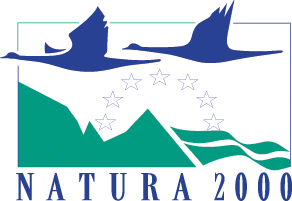Published papers produced by MoorLIFE 2020
See all our featured reports and papers here
Or use our search tool (top right of page)
Here is a list of research papers published as part of MoorLIFE 2020. Scroll down to find a list of reports produced as part of MoorLIFE2020.
Trajectories of ecosystem change in restored blanket peatlands
Highlights: Ecosystem services show phased recovery following restoration in eroded peatlands. Re-vegetation is key to reporting project success over short funding timeframes. Results support wide-scale adoption of Lime-Seed-Fertiliser-Mulch restoration.
Restoration of blanket peat moorland delays stormflow from hillslopes and reduces peak discharge
Highlights: Re-vegetation of bare peat leads to significant reductions in depth to water table. Re-vegetation reduced peak storm flows by 27% and increases lag times by 106% from experimental headwater micro-catchments in the South Pennines (UK). Gully blocking enhances the benefits of re-vegetation. Increased surface roughness is the key driver of runoff change. Peat restoration can contribute to Natural Flood Management and reduce downstream flood risk.
Controls on the spatial distribution of natural pipe outlets in heavily degraded blanket peat
Highlights: Pipe outlets mostly occur on streambank edges parallel to the stream. At gully head retreat points, pipe outlets are large and close to the surface. Aspect is a strong control on pipe outlet frequency in degraded blanket bog. Pipe outlet frequency is associated with desiccation on gully edges.
Effects of pipe outlet blocking on hydrological functioning in a degraded blanket peatland
Highlights:
- gully edge pipes contributed 11% of gully stream flow
- pipes with headward retreat positions produced larger peak flows and larger storm contributions to streamflow than pipes that exited from straight gully edges
- water tables exhibited a distance-decay effect, becoming deeper the closer to the outlet of pipes exiting from straight gully edges
- the use of plugs or impermeable barriers to block pipe flow resulted in the formation of new outlets or seepage around the block within 90 days
This investigation concluded that impeding flow at pipe outlets exacerbates further pipe formation but that surface storage structures should be prioritised higher up the pipe network.
Aquatic carbon concentrations and fluxes in a degraded blanket peatland with piping and pipe outlet blocking
Highlights:
- both pre- and post-blocking, maximum concentrations of DOC and POC were markedly higher in pipe-water than stream-water
- pipe outlet blocking was probably ineffective in reducing fluvial carbon export from pipe networks
- pipes need to be considered when seeking to reduce fluvial carbon export in degraded blanket peatlands
Blanket-peat restoration: numerical study of the underlying processes delivering Natural Flood Management benefits in Water Resources Research
Highlights:
- There is a lack of clear understanding regarding the individual effects of revegetation and gully-blocking on Natural Flood Management benefits such as delay and reduced flood peaks.
- Modelling by University of Newcastle (David Milledge and Salim Goudarzi) confirms that during the largest storms these benefits are primarily due to surface roughness slowing overland flow. However the impact of gully blocking is significant and similar in magnitude.
- During smaller events, the effects of interception, ponding and evapotranspiration are more important.
Report hosted on external website
Monitoring the impact of blanket bog conservation in the South Pennine Moors Special Area of Conservation using an Unmanned Aerial Vehicle
Reports and resources produced by MoorLIFE 2020
Effects of Blocking Deep, Mineral-Based Peat Pipes
A report on the effects of blocking deep mineral-based peat pipes on a degraded blanket bog
Effects of Blocking Deep, Mineral-Based Peat Pipes Report
Annex 1
Effects of Blocking Deep, Mineral-Based Peat Pipes Report
Annex 2
Close Moss Bund Trial Results
A report investigating whether or not bunding is an effective restoration technique on blanket bogs within UK uplands
Impacts of Cutting Cotton Grass on Sphagnum Moss Growth Trial Report
A trial to determine if cutting areas of blanket bog dominated by common cotton grass or hare's tail cotton grass, had a positive impact on the growth rate of Sphagnum moss
Final Wildfire Database Report
A guide to the methodology used in creation of the wildfire database and an analysis of trends associated with key variables
Peat Pipe Research on Blanket Bog Synthesis and Management Guidance
A report on the causes, distribution and types of peat pipes, their impact on hydrology and carbon export, how to prevent them and whether they can be blocked.
Carbon Modelling | Phase 3
Updated analysis of MoorLIFE 2020 carbon modelling
Ecosystem Service Impacts of Degraded Blanket Bog Restoration
1: Report Summary
Ecosystem Service Impacts of Degraded Blanket Bog Restoration
2: An Introduction
Ecosystem Service Impacts of Degraded Blanket Bog Restoration
3: Vegetation Diversity
Ecosystem Service Impacts of Degraded Blanket Bog Restoration
4: Water Table, Soil Moisture and Overland Flow Generation
Ecosystem Service Impacts of Degraded Blanket Bog Restoration
5: Stream Discharge
Ecosystem Service Impacts of Degraded Blanket Bog Restoration
6: Water Chemistry
Ecosystem Service Impacts of Degraded Blanket Bog Restoration
7: Sediment Generation and Transport
MoorLIFE 2020 Carbon Audit Update Report
Final analysis of the MoorLIFE 2020 project carbon footprint
MoorLIFE 2020 Business and Visitor Surveys
Analysis of results for the MoorLIFE 2020 Business and Visitor Surveys undertaken in 2017
Kinder Scout Sphagnum Trials 2020 Update Report | MoorLIFE 2020 | 2021
An update report monitoring sphagnum growth from propagules applied to re-vegetate degraded blanket bog
MoorLIFE 2020 Layman's Report
A report on the aims and achievements of the MoorLIFE 2020 project
Sphagnum Practitioners' Guide | Part 1
A toolkit for sphagnum reintroduction into blanket bog.
Socio-economic impact of MoorLIFE 2020 project
A report into the social and economic impacts of the MoorLIFE 2020 project.
MoorLIFE 2020 Contractor and Land Manager Surveys
Analysis of results for the MoorLIFE 2020 Contractor and Land Manager Surveys.
UAV conservation practitioners guide, MoorLIFE 2020 | 2022
A conservation practitioner’s guide to the use of unmanned aerial vehicles (UAVs) for peatland monitoring and conservation
Bogtastic Trump Cards
A fun educational card game for children and young adults to learn about moorland wildlife and upland plants
Estimated amount of carbon released by wildfire on Marsden Moor in April 2019
Estimated amount of carbon released by wildfire on Marsden Moor in April 2019
Final wildfire perception and incidents survey report | MoorLIFE 2020 |2021
Establishing expert opinion on the perceived change in risk and severity of wildfire, prior to and after conservation work has been completed
Baseline wildfire perception and incidents report - Final report | MoorLIFE 2020 |2017
Establishing expert opinion on the perceived risk and severity of wildfire prior for single species habitats, and the scenarios behind ignition.
MoorLIFE 2020 Wildfire database report (updated 2021)
A guide to the method used in creation of the wildfire database and an analysis of trends associated with key variables.
Wildfire Ignition Risk Mapping Summary MoorLIFE2020 | 2019
Risk of sustained ignition mapping for the Peak District National Park. Summary - shorter read.
Wildfire Ignition Risk Mapping Report MoorLIFE2020 | 2019
Risk of sustained ignition mapping for the Peak District National Park. Report - longer read.
Roaches wildfire 2018 carbon case study (shorter read)
Case study estimating the amount of carbon released from a wildfire at The Roaches in 2018
Roaches wildfire 2018 carbon report (longer read)
A report into the estimated amount of carbon released as a result of the wildfire that occurred on the Roaches in August 2018.
Monitoring the impact of blanket bog conservation using aerial imagery MoorLIFE 2020 | 2020
Using aerial imagery to monitor vegetation at a landscape scale, rather than the traditional site scale.
MoorLIFE 2020 Carbon Audit update report 2016
We are monitoring the carbon footprint of the MoorLIFE 2020 project, with the aim of identifying where carbon savings can be made. This, the first update report contains methodology as well.
Carbon Audit update report | MoorLIFE 2020 | 2021
We are monitoring the carbon footprint of the MoorLIFE 2020 project annually, with the aim of identifying where carbon savings can be made.
MoorLIFE 2020 Single species sphagnum report 2021
A report on techniques for planting sphagnum effectively
Funded by

